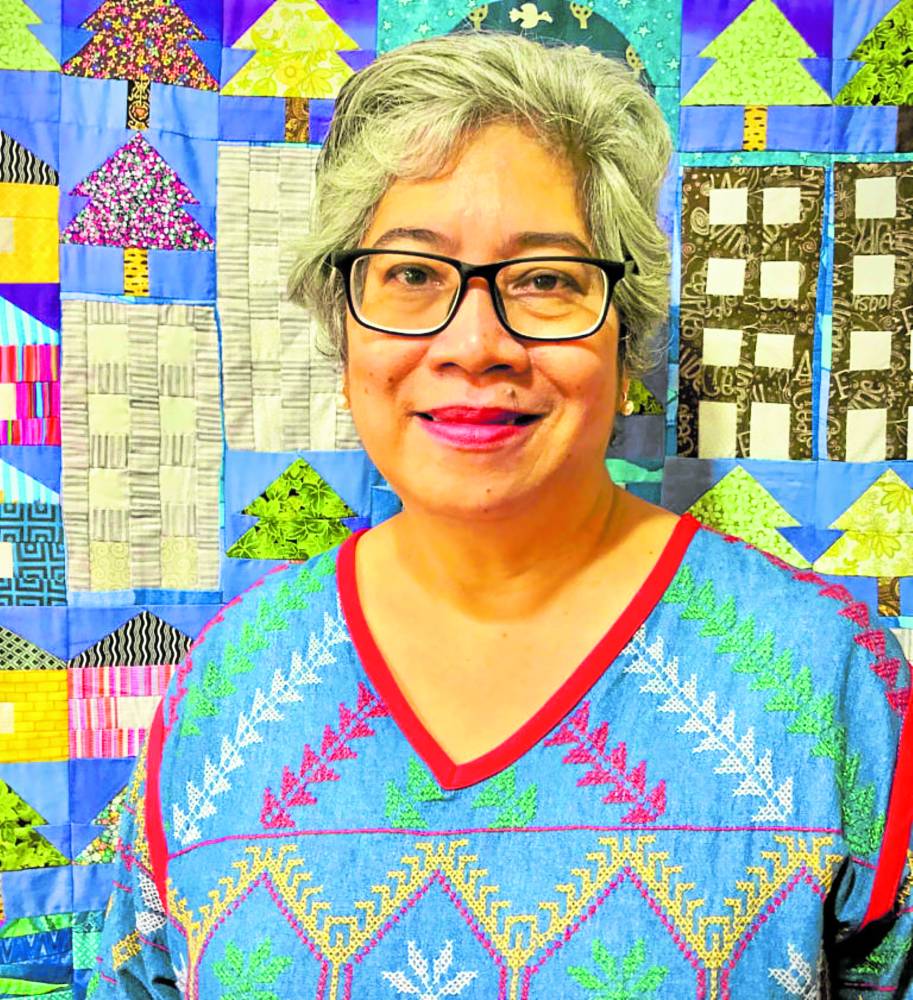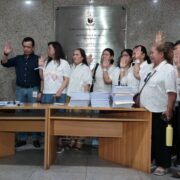New mom’s journey of self-exploration leads to advocacy for children’s rights

After giving birth in 1988, Amihan Abueva started thinking about the kind of world she wanted to leave behind to her son.
It was the kind of introspection that came with being born to a family of trailblazers. Her father, for instance, was the late National Artist for Sculpture Napoleon Abueva. It was also two years after the first Edsa People Power Revolution and the time seemed ideal for determining what kind of mother she wanted to be.
After meeting other women who guided her to navigate motherhood, Abueva joined the local children’s alliance Salinlahi which taught her to “listen to children and understand more what they were facing” and to build networks of organizations to champion the cause.
What started out as a personal exploration for her son’s well-being has also since turned into a full-fledged advocacy that has impacted the lives of kids across Asia, earning for Abueva this year’s Asia Democracy and Human Rights Award (ADHRA).
“I’m glad that the work for children is being recognized because we really need to have a better understanding of [their rights] to participate in matters that affect them,” she said. “I see this award not only as a personal validation but as an affirmation of the work that we’re doing.”
The ADHRA, given by the Taiwan Foundation for Democracy since 2006, recognizes “individuals or organizations that have demonstrated long-term commitment and outstanding leadership in advancing democracy or human rights through peaceful means in Asia.”
Among its previous recipients were the Philippines’ Asian Federation Against Involuntary Disappearances (2016), Reporters Without Borders (2006), Myanmar activist Cynthia Maung (2007), and Malaysia’s Coalition for Clean and Fair Elections, BERSIH 2.0 (2017).
Abueva is only the country’s second awardee since the award’s inception. In choosing her, the Taiwan Foundation for Democracy said it was recognizing the “30 years of work [she] has done to promote children’s rights and welfare in Asia.”
This included leading the Child Rights Coalition Asia (CRC Asia), a regional network of organizations working to uphold and promote kids’ protection and participation.
The network—which has at least 16 member organizations from 13 countries in South Asia, East Asia and Southeast Asia—has been at the forefront of championing their rights to a healthy environment, mental health and against sexual abuse and violence.
Abueva also served as the former executive secretary of the group End Child Prostitution, Child Pornography, and Trafficking of Children for Sexual Purposes International or ECPAT International, where she lobbied to raise the issue of child pornography and child sexual abuse as among the new urgent concerns facing the young.
Direct impact
But among her many accomplishments, she said she was most proud of the small things with a direct impact on kids’ day-to-day life, like advocating for adolescent girls and women to shift to menstrual pads and panty liners to help avoid plastic waste.
“There are different opportunities to highlight and practice children’s rights in our daily lives,” Abueva said. “We have to see it as a daily thing and not just as a job.”
More than protecting the young ones’ rights to welfare, survival and development, she also believed that they should be given the right to participate “and speak about their own situation and propose their own solutions.”
“We do have a lot of program on child survival and development, but a lot of issues like infant mortality, stunting and wasting—a lot of it is due to a lack of recognition that children need to have more information,” she added.
For example, Abueva said the country’s dismal performances in terms of infant mortality and wasting (malnutrition) could be attributed in part to the rise of teenage pregnancy which was compounded by the lack of access and services for children and adolescents. But despite the passage of the 2012 reproductive health law, “many people still hesitate to discuss and educate on these, which means a lot of adolescents and teenagers do not have access to correct information and services.”
“This is where you could see the linkages between the lack of substantial participation [in] the other problems of survival and development,” she added. “These could be addressed if children had more substantive participation in decision-making.”
Listening
While the Philippines has a strong range of legislation and measures that are pro-kids, these could be further improved by ensuring their implementation and by also including children in the discussion.
“There are avenues already provided by our laws for children to participate,” Abueva said. “What is needed is for local government officials who are willing to sit down and listen to children… these are not just tokenistic exercises but exercises where public officials take the opportunity to listen to their concerns.”
Abueva also urged not just Filipino officials, but Asian governments in general, to “listen to children” and not undermine their thoughts and concerns.
“[Their voices] should not be something to be wary of, but we should welcome that children are concerned and want to express their thoughts,” she said. “After all, only tyrants are afraid of children.” INQ















